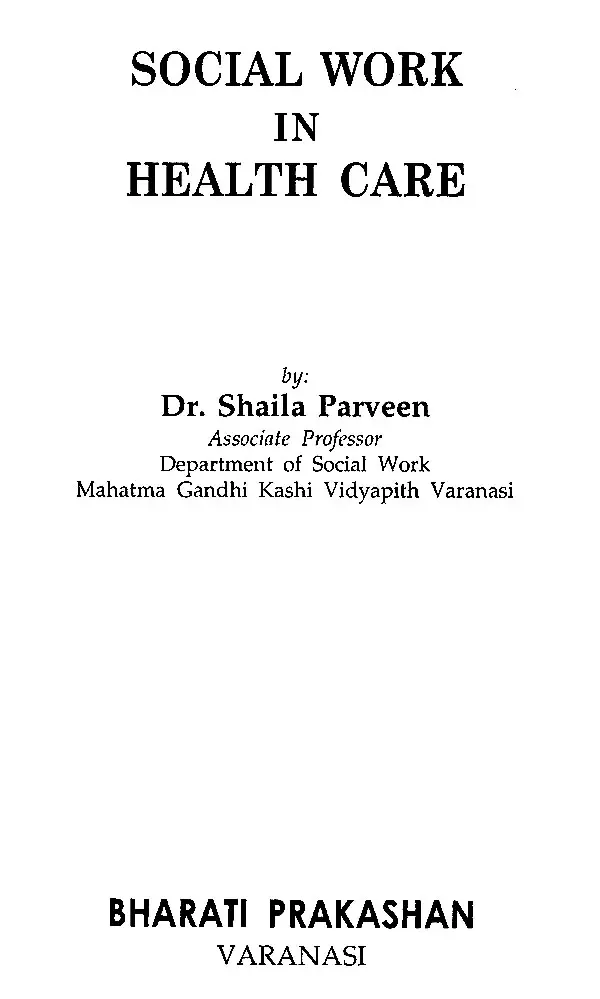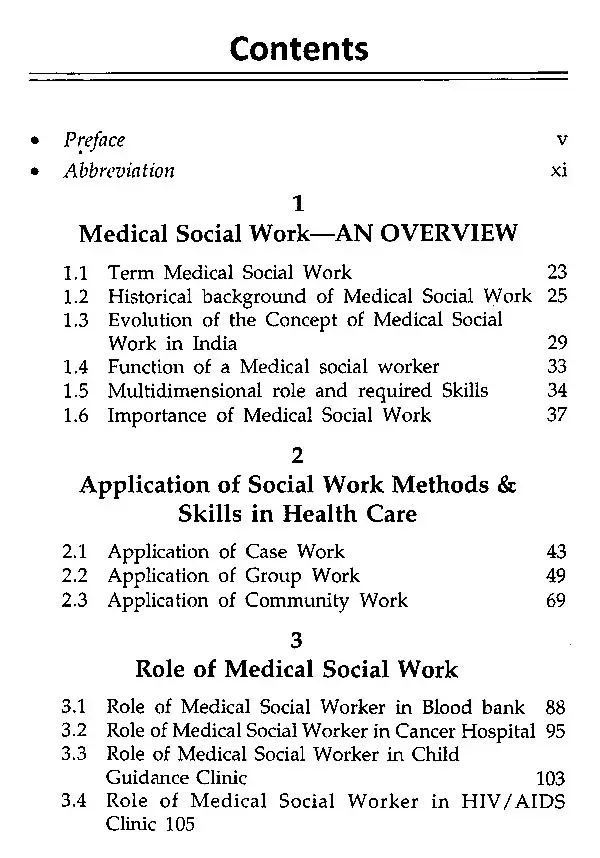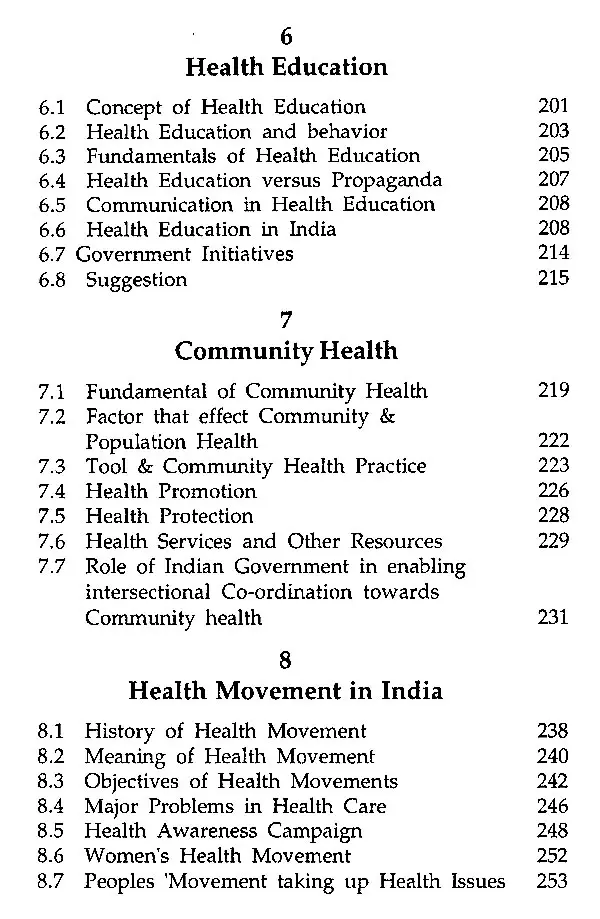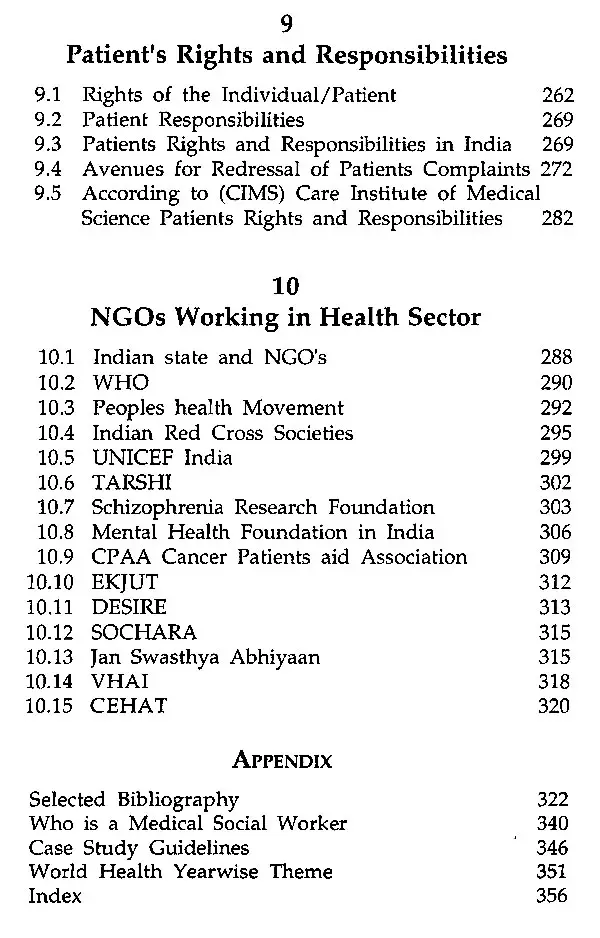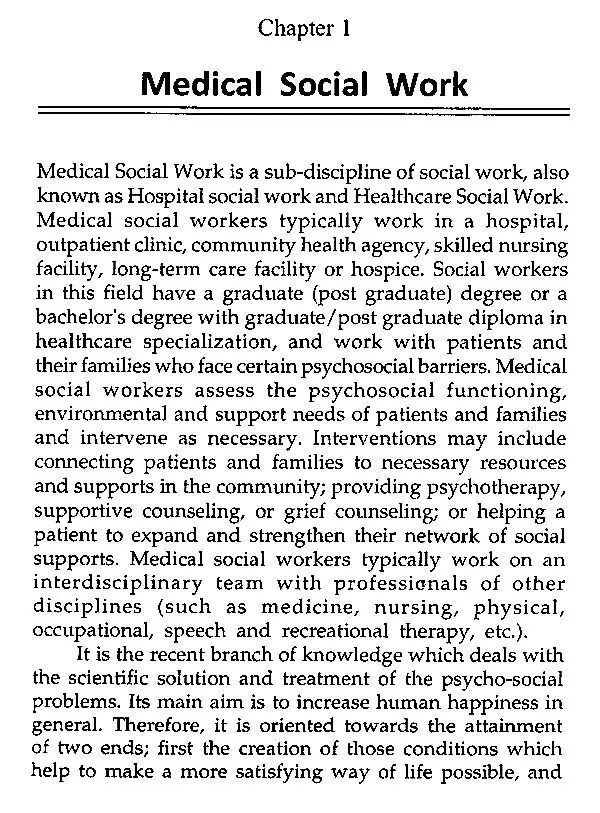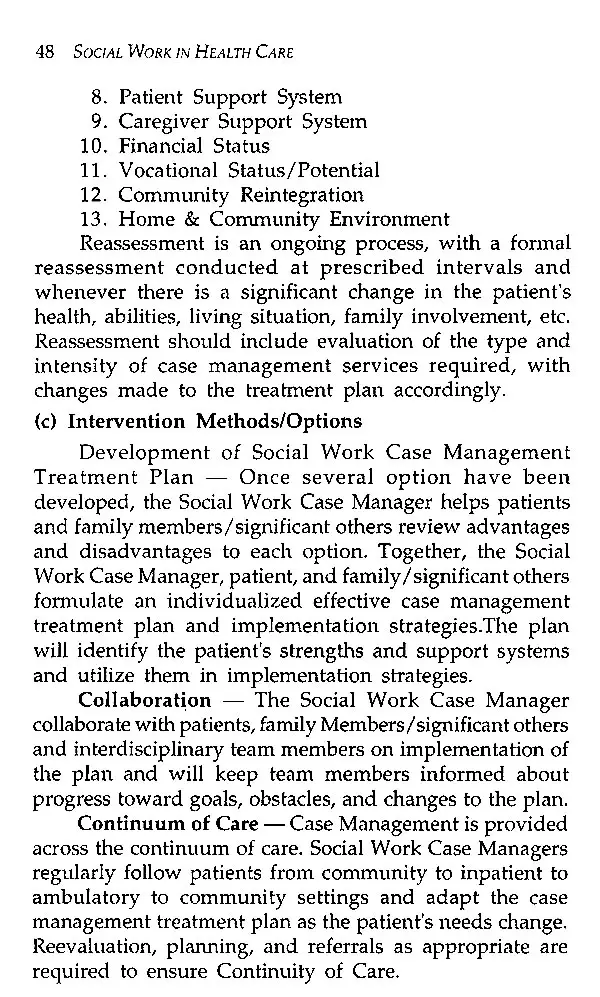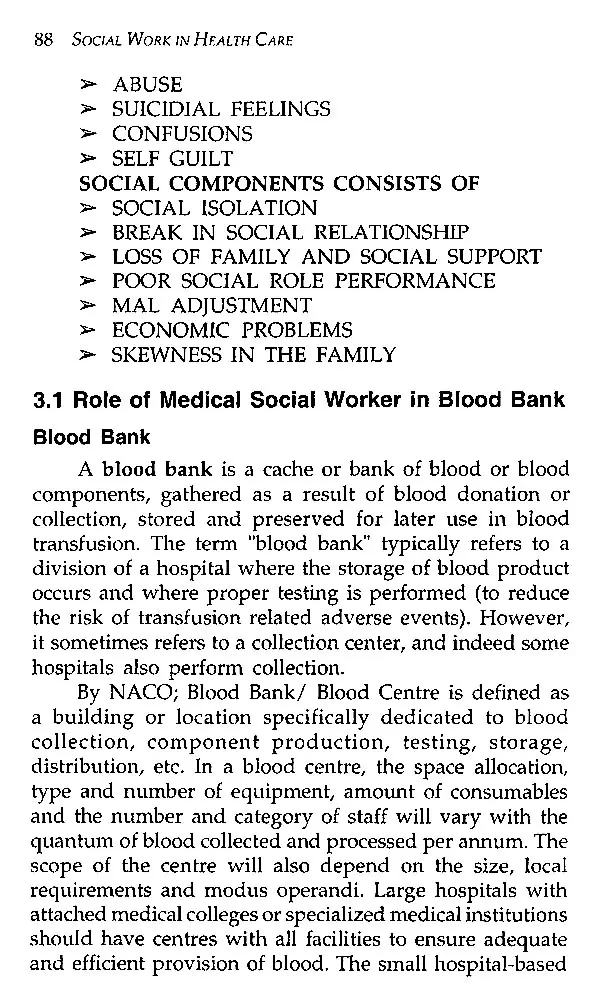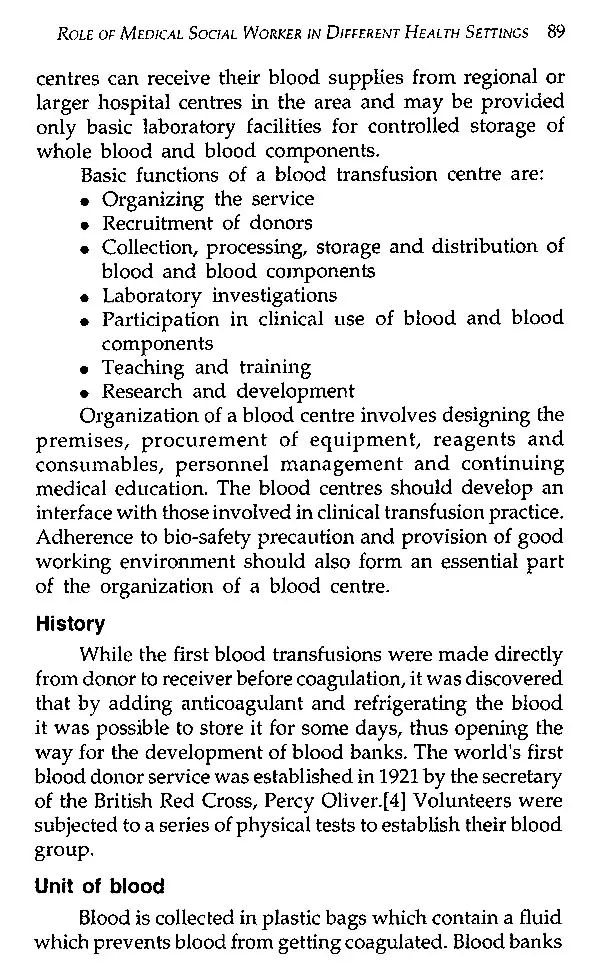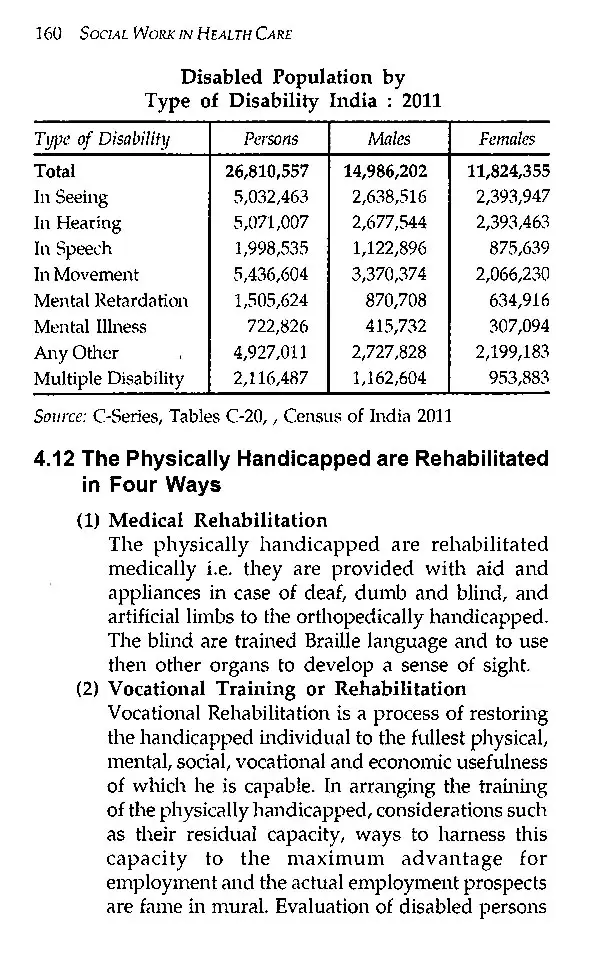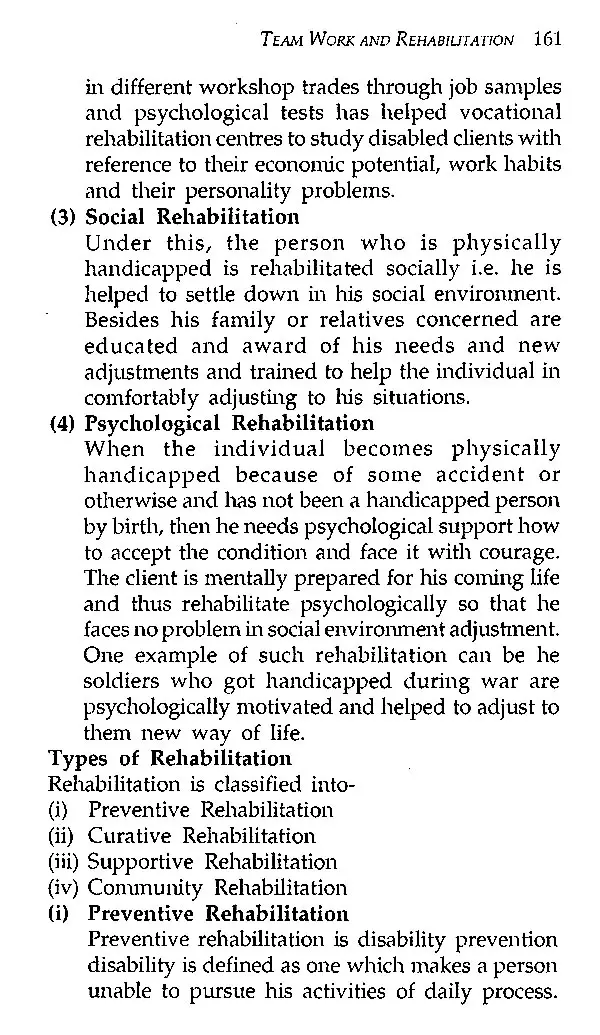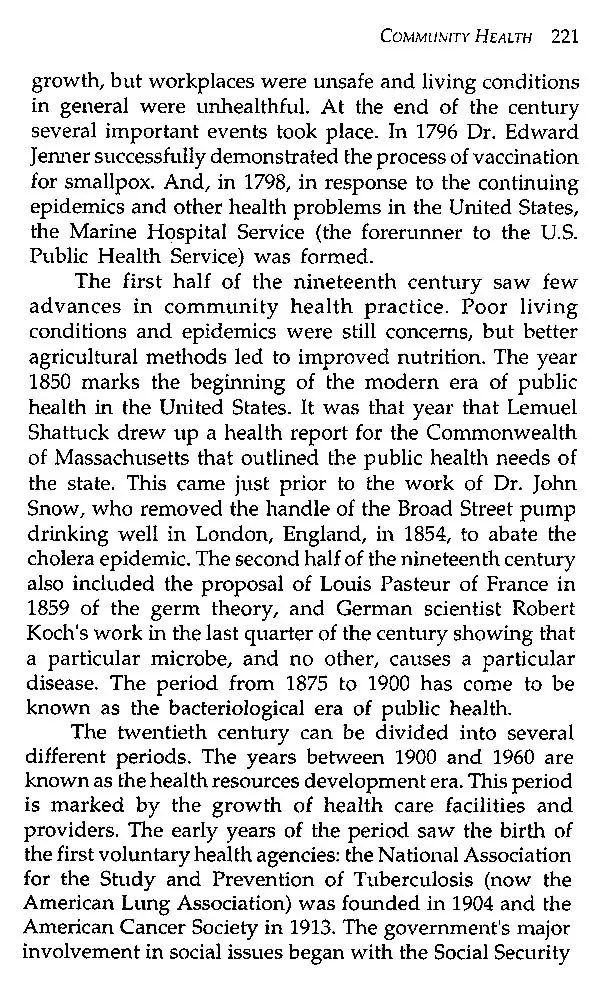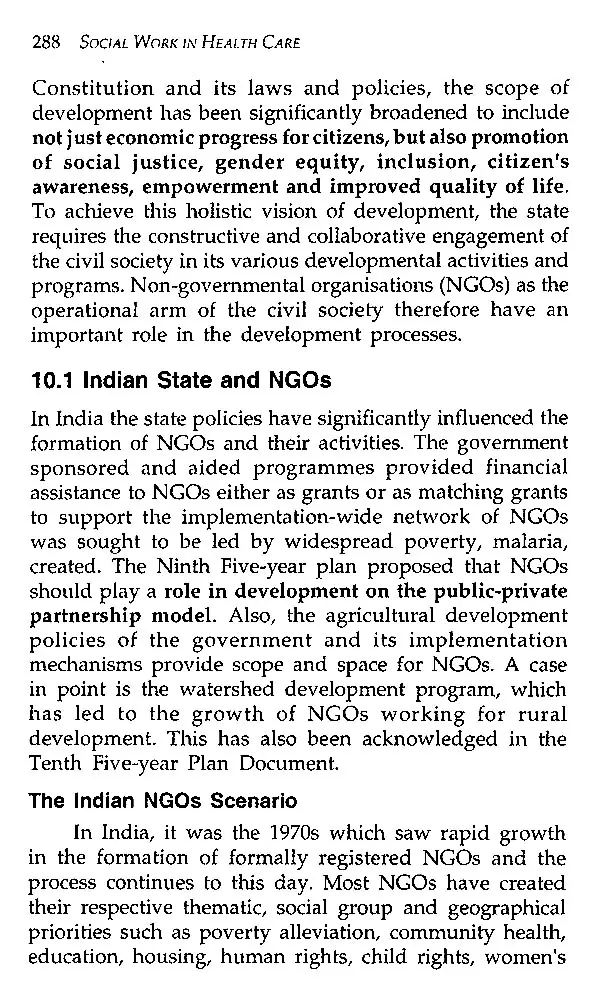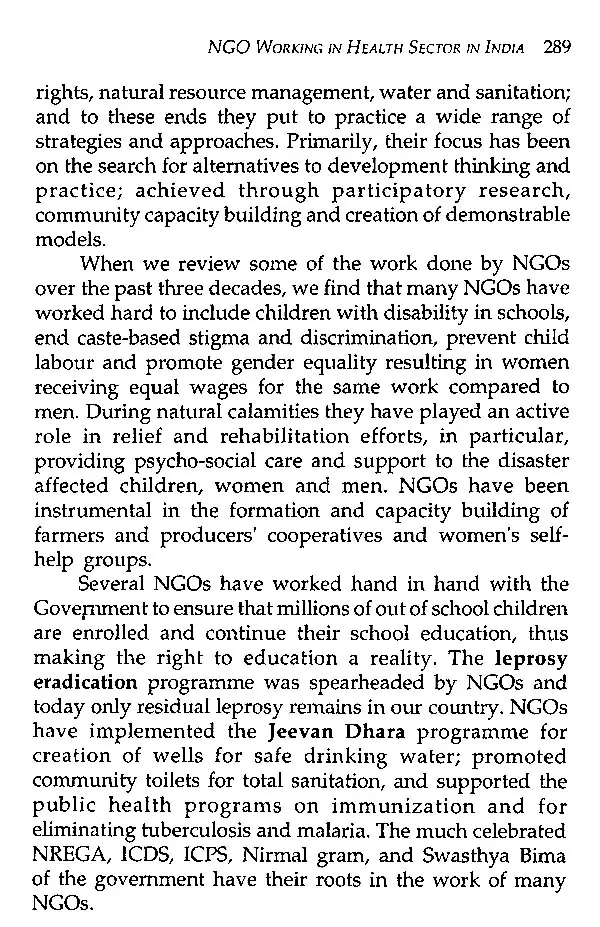
Social Work in Health Care
Book Specification
| Item Code: | UAI601 |
| Author: | SHAILA PARVEEN |
| Publisher: | BHARTI PRAKASHAN, VARANASI |
| Language: | English |
| Edition: | 2017 |
| ISBN: | 9789380550862 |
| Pages: | 358 |
| Cover: | HARDCOVER |
| Other Details | 9.00 X 6.00 inch |
| Weight | 580 gm |
Book Description
Health is a positive state of well being in which the harmonious development of physical, mental and social capacities of the individual leads to enjoyment of a rich and full life. It is not a mere absence of disease. Health further implies complete adjustment of the individual to his total social & physical environment Health care is fundamental to national progress in any sphere in terms of resources for economic development. Nothing can be more important than the health of the people who are the sources energy, capacity and potential for productive work.
Human relationship can bring. satisfaction and joy but also for many people suffering insecurity and other difficulties, Social Work is one answer to changes related to communication, feelings and human action Medical social work plays an important role in understanding the psycho-social problems of the individuals who are in need Medical conditions affect far more than the body. They can result in an onslaught of emotional, financial, and social needs. Social workers are adept at helping people meet these sorts of needs and so we find social workers in many locations where health services are delivered. They are known as medical and health care social workers. They may serve as case managers, patient navigators, and therapists.
In this book the text discussed the origin of Medical social work. Role of medical social work in different health settings. community health, health education, use of methods of social work in health care. NGO's working in health care.Team work, Rehabilitation of physically handicapped Health care, In this book the author has tried to point the important of psycho-social and health aspects of social and health of social work profession.
The purpose of this book is to help student understanding health and social work. It presents a comprehensive highlighted view of social work in medical setting. It focuses on why the what, who, when and where Social Work is applicable in Health Care.
Dr. Shaila Parveen is an associate professor in the Department of Social Work Mahatma Gandhi Kashi Vidyapith Varanasi. Her professional experience spread over 15 years includes both practice and teaching both at graduate and under graduate levels. She has considerable research experience on women .minorities.health voluntary welfare agencies and is deeply involved in various health programmes for women in slums and villages. She has authored and co authored four books more than 20 research papers and has presented papers at many National and International Seminars/Conferences.
She is the memebr of of Several Universities and National level committes. She has completed three Major Projects sponsered by NCW. UGC and ICSSR. She has also done evaluation research for CRY and Tata Trust. Her Major Areas of Thrust are minorities, Woman and Health.
Health problems of a community are seen as outcomes of interaction between certain causative agents and individuals, which are mediated by the environmental conditions. In other words, the malfunctioning of social system in terms of population explosion, unemployment, poverty, ignorance, old age, unhygienic living conditions, bad housing, poor nutrition, incompatible dietary habits, poor quality of sanitary facilities, lack of safe drinking water, etc. are the causes of ill health. Thus, it is assumed that ill health is only a symptom of social disequilibrium. In medical science, curing illness or good health has been postulated as a result of application of medicine. Many social scientists are of the opinion that health is misunderstood with treatment, which is not a precondition for good health. The consciousness of the people, culture and power of the dominant classes influence the concept of health and approaches to control health problems. Thus, it is clear that social forces or factors are very vital for the health of the masses. In the field of social work, how social factors in health were recognized by the lady almoners.
Social work has been a part of the health care scene more than 100 years. Social workers have been involved in health care at all levels: preventive care, primary care, secondary care, tertiary care, restoration care, and continuing care. They play various roles depending on the major purpose and functioning of the health care setting. Constitution of India makes health in India responsibility of the state rather than the federal government. It makes every state responsible for raising the level of nutrition and the standard of living its people and the improvement of public health as among its primary duties. As according to WHO 2016 the population of India is reaching 1 million 31crores. India is the second most populous country of the world and has changing socio political demographic and morbidity patterns that have been drawing global attention in recent years. Despite several growth orientated policies adopted by the government, the widening economic, regional and gender disparities are posing challenges for the health sector. About 75 percent of health infrastructure, medical man power and other health resources are concentrated in urban areas where 27 percent of the population live. Contagious, infectious and waterborne diseases such as diarrhoea, amoebiasis, typhoid, infectious hepatitis, worm infestations, measles, malaria, tuberculosis, whooping cough, respiratory infections, pneumonia and reproductive tract infections dominate the morbidity pattern, especially in rural areas. However, non-communicable diseases such as cancer, blindness, mental illness, hypertension, diabetes, HIV/ AIDS, accidents and injuries are also on the rise. The health status of Indians, is still a cause for grave concern, especially that of the rural population. This is reflected in the life expectancy (63 years), infant mortality rate (80/ 1000 live births), maternal mortality rate (438/100 000 live births); however, over a period of time some progress has been made. To improve the prevailing situation, the problem of rural health is to be addressed both at macro (national and state) and micro (district and regional) levels. This is to be done in an holistic way, with a genuine effort to bring the poorest of the population to the centre of the fiscal policies. A paradigm shift from the current 'biomedical model' to a 'sociocultural model', which should bridge the gaps and improve quality of rural life, is the current need.
A revised National Health Policy addressing the prevailing inequalities, and working towards promoting a long-term. perspective plan, mainly for rural health, is imperative in comparison to this growing population there is a scarcity of health facilities and health delivery in India. Diseases such as Dengue fever, Chickengunia fever, hepatitis, tuberculosis continue to plague in India due to unhygienic living conditions, thickly dense population.
As more than one 122 million household have no toilets, 33 percent lack access to latrine. Over 50 percent of the population defecate in the open. Several million suffer from multiple episodes of diarrhoea and still others fall ill on account of no safe drinking water. Maternal death are similarly high. Women's health involves humorous issues i.e. Malnutrition, Breast cancer, Maternal mortality. Non Communicable diseases such as Cancer, Mental illness, hypertension, diabetes are on seen status of Indians.
Although various programmes have been started by the government, but the illiteracy and unawareness about health and hygiene is an important cause that lead to poor health in India. Medical Social Workers play an important role at the prevention level motivating the people for environment and life Style awareness about the diseases.
This book has been written in keeping all the above health problem in mind, the book has been divided into sixteen chapters.
Chapter number 1 is about Concept of medical social work. It includes the definition and historical evolution of social work in India and abroad. Chapter 2 and 3 orients the readers about the use of principles and methods of social work applicable in medical health setting and role of medical social worker in different units of health.
